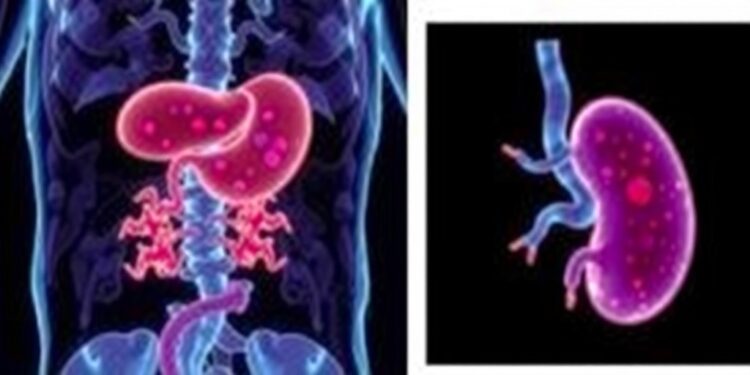FGFR2 Abrogation Intercepts Pancreatic Ductal Adenocarcinoma Development
In a groundbreaking study published in the journal Cancer Research, researchers have uncovered intriguing insights that could reshape our understanding of pancreatic cancer progression. The focus of the study centers around the FGFR2 protein, with findings suggesting that its expression is markedly heightened in precancerous pancreatic lesions and certain pancreatic ductal adenocarcinoma (PDAC) tumors bearing KRAS mutations. This knowledge opens the door for potential therapeutic strategies aimed at intercepting the transition from precancerous conditions to malignant tumors.
Pancreatic ductal adenocarcinoma is a notorious malignancy characterized by its aggressive nature and poor prognosis, often making it one of the deadliest forms of cancer. Recent research led by Claudia Tonelli, PhD, affiliated with Cold Spring Harbor Laboratory and a prominent figure in the field of cancer research, sheds light on the dual role of KRAS mutations and FGFR2 expression in the development of this devastating disease. While KRAS mutations have long been recognized as pivotal drivers of pancreatic cancer, Tonelli highlights the necessity of investigating additional molecular pathways that facilitate the transition from precancerous lesions to full-blown malignancies.
The study, conducted through meticulous analysis of murine and human pancreatic tissue specimens, revealed a troubling correlation: precancerous lesions harboring KRAS mutations exhibited significantly elevated levels of FGFR2 expression compared to their normal counterparts. These findings are noteworthy, as they suggest that FGFR2 may serve as a critical player in accelerating the progression of KRAS-mutated lesions, potentially serving as a linchpin for targeted therapeutic intervention.
The implications of these observations are profound. By demonstrating that heightened FGFR2 expression appears to correlate with increased mutant KRAS signaling, Tonelli and her colleagues posit that FGFR2 may be integral to the process by which precancerous pancreatic lesions evolve into malignant tumors. This revelation not only offers a deeper understanding of pancreatic cancer biology but also paves the way for novel treatment approaches that could mitigate disease progression.
Frontiers in animal research were pushed further as the investigators proceeded to explore the effects of FGFR2 inactivation on the development of pancreatic cancer. Their experiments utilizing genetically modified mice revealed that those lacking the FGFR2 gene exhibited a notable reduction in the formation of precancerous lesions, along with a delay in the onset of PDAC tumors. This demonstrates a compelling role for FGFR2 in driving tumorigenesis, suggesting that its inhibition could potentially halt the progression of pancreatic cancer at a critical juncture.
In a complementary vein, the study also examined the effects of dual inhibition targeting both FGFR2 and another well-known signaling protein, EGFR. The results were striking: the simultaneous inhibition of these pathways resulted in a significant reduction in the formation of precancerous lesions in mice endowed with KRAS mutations. Such findings not only substantiate the role of FGFR2 in pancreatic cancer progression but also highlight the potential for combination therapies to enhance treatment efficacy and patient outcomes.
While the findings hold promise for developing targeted therapies aimed at patients with precancerous lesions at high risk of progressing to PDAC, Tonelli remains cautious. The clinical effectiveness of FGFR inhibitors in the context of pancreatic cancer interception necessitates rigorous testing through clinical trials. This caution stems from the need to ascertain that such interventions can yield tangible benefits for patients facing this formidable disease.
Tonelli emphasizes the implications of this work for devising strategies for both interception and prevention of pancreatic malignancies. By providing insights into the molecular landscape of pancreatic cancer development, the research presents a potential roadmap for clinical applications, potentially revolutionizing the current landscape of treatment for at-risk individuals.
Despite the significant revelations of this study, Tonelli acknowledges limitations that warrant further exploration. The research did not delve directly into whether FGFR2 inactivation in precancerous lesions would effectively block or delay subsequent PDAC progression. This opens the door for future investigations, where long-term FGFR2 inhibition or genetic manipulation could yield more comprehensive insights into the timeline of pancreatic cancer development.
The study received vital support from the National Institutes of Health and the Lustgarten Foundation, which underscores the importance of funding and resources in the pursuit of groundbreaking cancer research. As Tonelli continues her work in a promising field, the results from this study serve as a stark reminder of the complexity of cancer biology and the necessity of exploring multiple avenues of intervention.
In conclusion, the groundbreaking findings on FGFR2’s role in pancreatic ductal adenocarcinoma development present a newfound perspective on the disease’s progression and potential treatment pathways. As researchers continue to unravel the intricate biological networks that govern cancer evolution, the hope remains that these insights will contribute to the prevention and interception of one of the most lethal cancers known to humanity.
Subject of Research: FGFR2 and pancreatic ductal adenocarcinoma
Article Title: FGFR2 Abrogation Intercepts Pancreatic Ductal Adenocarcinoma Development
News Publication Date: 2-Apr-2025
Web References: https://doi.org/10.1158/0008-5472.CAN-24-4576
References: Cancer Research Journal, Claudia Tonelli’s published study
Image Credits: American Association for Cancer Research
Keywords: pancreatic cancer, precancerous lesions, FGFR2, KRAS mutations, pancreatic ductal adenocarcinoma, cancer research, clinical trials, targeted therapies, tumorigenesis, signaling pathways




